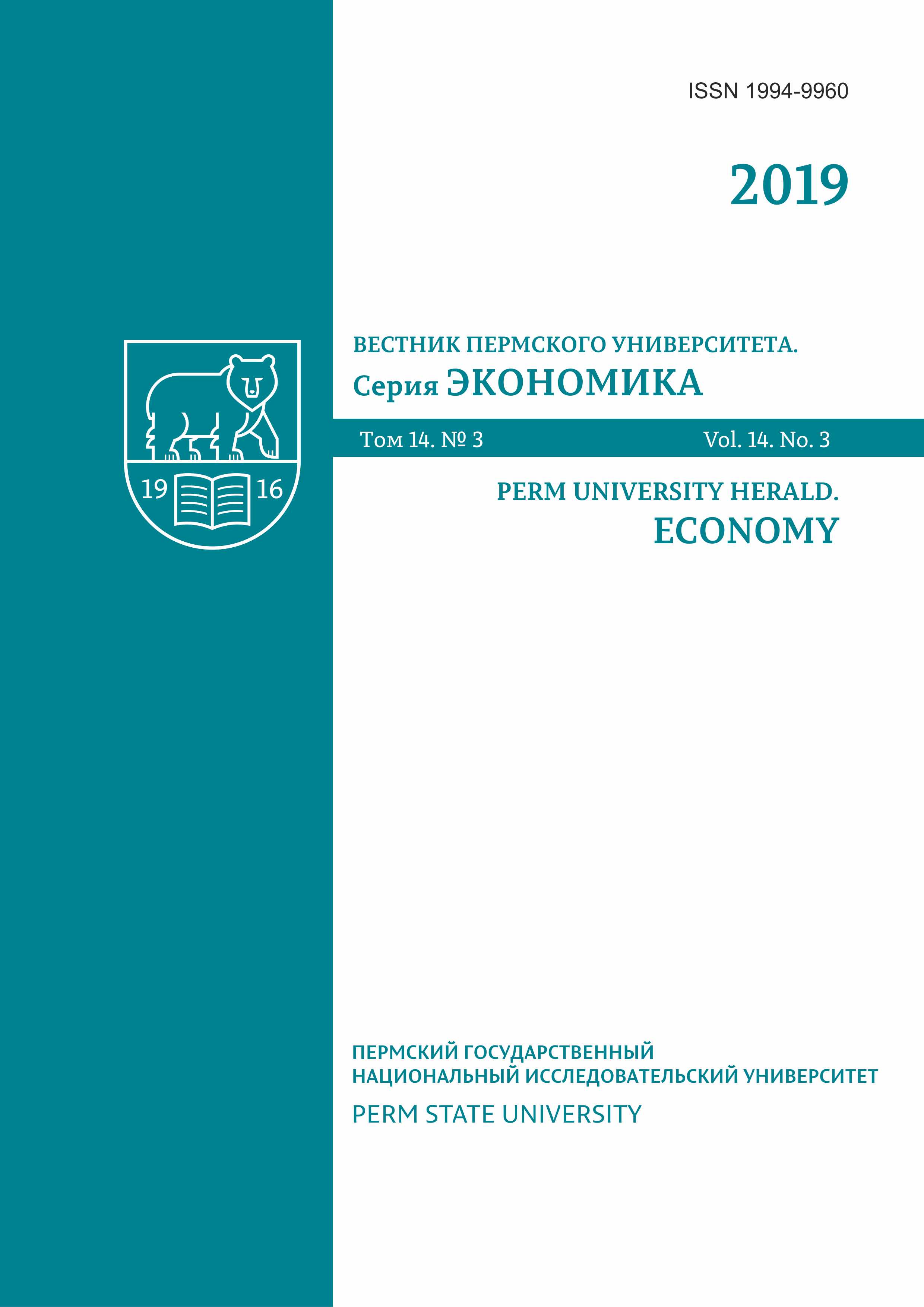Vol. 14 No. 3 (2019)

Issue No. 3 of the Journal presents the genesis of theoretical comprehension about sustainable development of social and economic systems based on the principles of system and three-part approaches, cluster paradigm and corporate social responsibility.
The journal section “Economic-mathematical modeling” begins with the article that is devoted to a theoretically substantiated model for the project management of distressed bank assets. Further verification for the assessment of various schemes for the repurchase of distressed assets by the government, as well as the scenario forecasts are suggested in the article. The second article of the section is devoted to the tools that are aimed to solving the problem of accounting for censored data when adjusting the model assessment of bank default risk for the validation of a scoring model
In the section “Regional economy” the results of three empirical studies have been published. The first one assesses the influence of digital economy development factors on the dynamics of investment attraction into the fixed capital. The second article is concerned with the impact of infrastructural availability on the social and economic development of Russian regions. And the third one analyses the level of peripheralization of Russian economic space using an adopted modern foreign approach to the study of this phenomenon.
Then the organizational and economic mechanism for the management of coordinated economic activities of participants of industrial clusters, justified from the view point of assessing the effectiveness of its application, has been suggested. The scholars have developed the system of criteria to identify organizational risks of a cultural event and determined management impact factors that provide high quality of the event organization (in the case study of two festivals that promote Romanian music). The final article in the Issue presents the verification of the OCPS (Organizational Culture – Projects Successful) approach modified in the context of the peculiarities of the Russian economy to assess the impact of organizational culture on project success.









